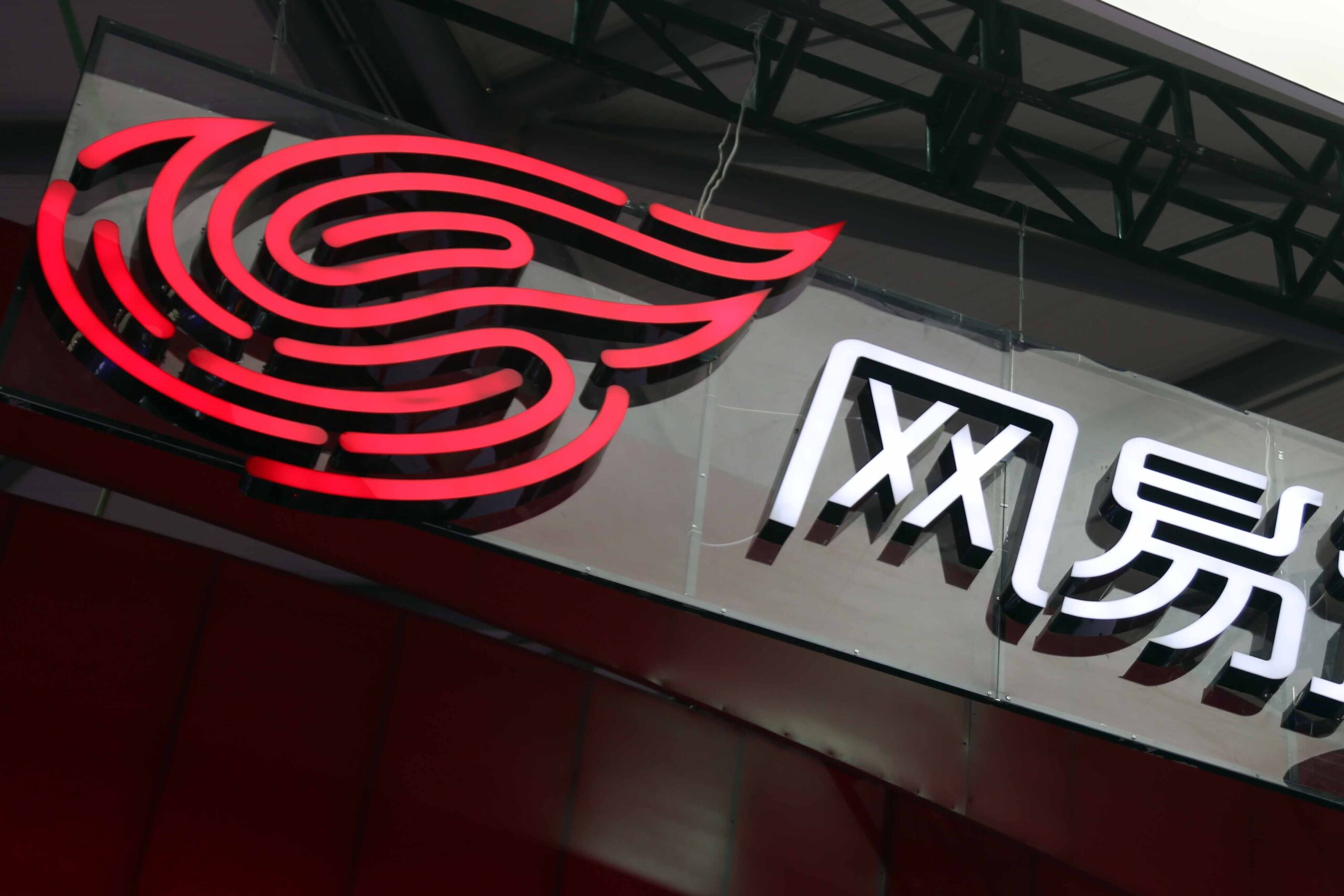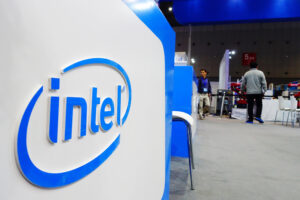The exit of NetEase from China’s public cloud market marks a significant shift in the tech sector. This move highlights the challenges of keeping pace with rapid AI advancements and the investments needed to stay competitive. As the AI race intensifies, NetEase’s decision reshapes market dynamics and underscores the pressures on tech companies. This article explores the implications of its withdrawal and broader trends in cloud computing and AI. NetEase’s strategy reflects the evolving demands of the industry and the need for adaptability in a fast-changing landscape.
NetEase’s Strategic Shift: Exiting the Public Cloud Arena

NetEase’s decision to exit the public cloud arena marks a significant strategic shift for the company. As the AI race intensifies, NetEase has chosen to refocus its efforts on its core strengths rather than compete head-to-head with tech giants in the cloud computing space.
Reasons Behind the Exit
The company’s withdrawal from the public cloud market stems from several factors:
Intensifying competition from major players like Alibaba and ByteDance
The substantial investments required to keep pace with AI-driven cloud infrastructure
NetEase’s focus on niche AI applications in gaming and robotics, limiting its ability to scale
This strategic move highlights the growing challenges in China’s cloud industry, where AI advancements are reshaping the landscape. As demand for computing power surges due to AI applications, cloud providers must make significant investments to remain competitive.
Implications for NetEase and the Industry
By exiting the public cloud arena amid the intensifying AI race, NetEase is:
Avoiding a costly battle with tech giants in a high-stakes market
Shifting focus back to its core strengths, particularly its gaming business
Demonstrating how AI is reshaping cloud computing, pushing companies to specialize
This strategic withdrawal highlights the ever-changing tech industry. Companies must assess competitive advantages and allocate resources wisely. NetEase’s decision reinforces the importance of focusing on core strengths. In a fast-moving landscape, sometimes the smartest move is refining priorities and doubling down on what you do best.
The Intensifying AI Race in China’s Cloud Market
The NetEase exits public cloud arena amid intensifying AI race, highlighting the fierce competition and rapid evolution of China’s cloud computing landscape. As artificial intelligence continues to reshape the industry, major players are investing heavily in AI-driven infrastructure to maintain their competitive edge.
Shifting Dynamics in Cloud Computing
China’s cloud market is experiencing a seismic shift as AI technologies become increasingly central to cloud services. Giants like Alibaba and ByteDance are pouring resources into developing advanced AI capabilities, driving up the stakes for all market participants. This trend is forcing companies to either invest heavily in AI or risk falling behind.
The AI-Driven Cloud Revolution
The integration of AI into cloud services is transforming the way businesses operate. From machine learning algorithms to natural language processing, these technologies are enhancing cloud offerings and creating new possibilities for data analysis, automation, and customer engagement. As a result, cloud providers must continually innovate to meet the growing demand for AI-powered solutions.
Specialization vs. Broad Competition
NetEase’s decision to exit the public cloud market reflects a rising trend toward specialization. Intense competition pushes companies to refine their focus. Instead of competing everywhere, businesses now prioritize core strengths and niche applications. This shift highlights the difficulty of managing a broad cloud portfolio. In an AI-driven market, staying competitive requires significant investment and scale.
Alibaba, ByteDance, and the AI-Driven Cloud Infrastructure Advantage
The Race for AI Supremacy
In the intensifying AI race, major players like Alibaba and ByteDance are heavily investing in AI-driven cloud infrastructure. These tech giants recognize the critical role of robust cloud services in supporting the massive computational demands of advanced AI systems. As NetEase exits the public cloud arena, companies like Alibaba and ByteDance are doubling down on their cloud offerings, integrating cutting-edge AI capabilities to stay ahead of the curve.
Scaling Up for Success
Alibaba Cloud, already a dominant force in China’s cloud market, is leveraging its vast resources to build AI-optimized data centers and develop proprietary AI chips. This strategy allows Alibaba to offer unparalleled performance for AI workloads, attracting customers who require high-powered computing for machine learning and deep learning applications.
ByteDance, known for its popular apps like TikTok, is also making significant strides in the AI-driven cloud space. By harnessing the massive amounts of data generated by its platforms, ByteDance is developing sophisticated AI models that can be deployed across its cloud infrastructure, providing unique value propositions to potential clients.
The Competitive Edge
The focus on AI-driven cloud infrastructure gives Alibaba and ByteDance a significant advantage in the evolving tech landscape. As businesses increasingly rely on AI to drive innovation and efficiency, these companies are positioning themselves as go-to providers for scalable, intelligent cloud solutions. This strategic approach not only helps them retain existing customers but also attracts new ones seeking to leverage advanced AI capabilities without building their infrastructure from scratch.
NetEase’s Niche Focus: Gaming and Robotics AI
While major players in China’s cloud market are investing heavily in AI-driven infrastructure, NetEase has taken a different approach. The company’s decision to exit the public cloud arena amid intensifying AI race highlights its strategic focus on niche applications where it can leverage its strengths.
Gaming AI: A Natural Fit
NetEase, known for its gaming prowess, has concentrated its AI efforts on enhancing gaming experiences. By developing AI algorithms for game design, player behavior analysis, and in-game NPCs, the company aims to create more immersive and personalized gaming environments. This focus aligns perfectly with NetEase’s core business and allows it to stay competitive in the rapidly evolving gaming industry.
Robotics AI: Exploring New Frontiers
In addition to gaming, NetEase has ventured into robotics and AI. This niche application demonstrates the company’s commitment to innovation beyond its traditional domains. By developing AI solutions for robotic systems, NetEase is positioning itself at the forefront of emerging technologies that have potential applications across various industries.
NetEase’s strategic shift away from the public cloud arena amid intensifying AI race reflects a calculated decision to concentrate on areas where it can excel. Rather than competing head-to-head with tech giants in general-purpose cloud services, the company is leveraging its expertise to drive innovation in gaming and robotics AI. This focused approach may well prove to be a winning strategy in the long run.
The Evolving Landscape of Cloud Computing: Specialization over Broad Competition
As NetEase exits public cloud arena amid intensifying AI race, we’re witnessing a significant shift in the cloud computing landscape. This strategic move highlights a growing trend: the necessity for specialization in an increasingly competitive market.
The AI-Driven Transformation
The cloud industry is undergoing a profound transformation, driven by rapid advancements in artificial intelligence. As AI technologies demand ever-increasing computing power, cloud providers face mounting pressure to invest heavily in infrastructure upgrades. This shift is reshaping the competitive dynamics, forcing companies to reassess their positions and strategies.
The Rise of Niche Expertise
In this evolving ecosystem, we’re seeing a clear divergence between generalist cloud providers and those focusing on specialized offerings. NetEase’s decision to concentrate on niche applications like gaming and robotics, rather than competing head-to-head with tech giants, exemplifies this trend. By leveraging their unique strengths and domain expertise, companies can carve out valuable niches in the market.
Strategic Implications for Businesses
For businesses relying on cloud services, this shift towards specialization has significant implications. While it may limit options in terms of general-purpose cloud providers, it also presents opportunities to partner with providers offering tailored solutions for specific industries or use cases. As the cloud landscape continues to evolve, companies must carefully evaluate their needs and choose partners that align with their strategic objectives.
Bringing It All Together
As the rapidly evolving cloud computing landscape, NetEase’s exit serves as a stark reminder of the transformative power of AI. This strategic shift underscores the importance of aligning business focus with core competencies in an increasingly competitive market. While major players continue to invest heavily in AI-driven cloud infrastructure, companies must carefully evaluate their position and adapt accordingly. The cloud industry’s future will likely be shaped by those who can effectively leverage AI technologies to meet growing demands for computing power. As this transition unfolds, it is crucial to stay informed and agile, ready to pivot strategies in response to the changing technological landscape.
More Stories
Vodafone Idea Ignites 5G Ambitions with Delhi Launch and Nationwide Rollout Strategy
Vodafone Idea (Vi) has boldly launched its 5G services in the bustling Delhi NCR region, redefining India’s telecom landscape.
Meta Accelerates Scientific Discovery with Massive AI-Driven Chemistry Dataset
Meta has made an ambitious leap toward revolutionizing scientific discovery and research. It introduced Open Molecules 2025, an AI-driven chemistry dataset.
Qlik Integrates Agentic AI and Launches Open Lakehouse to Enhance Autonomous Analytics
In the rapidly evolving landscape of enterprise analytics, Qlik’s latest announcements at the Qlik Connect 2025 conference mark a transformative...
Alibaba and RedNote Forge Seamless Shopping Path Amid China’s E-Commerce Rivalry
Alibaba and RedNote mark a pivotal shift in consumer experiences. Specifically, Alibaba integrates shopping features into social media content. This move targets RedNote’s vibrant audience and enables a smooth flow from product discovery to purchase.
Huawei and Keppel Forge Green Data Future with Solar and Battery Storage Pact
Huawei and Keppel formed a groundbreaking partnership to transform energy use in ASEAN data centers. They signed a Memorandum of Understanding to integrate solar and battery storage solutions.
Google Cloud Marketplace Elevates Loyalty with New Perks and Incentives
Google Cloud Marketplace has taken a significant stride in this direction by unveiling a suite of new perks and incentives designed to bolster customer loyalty.


